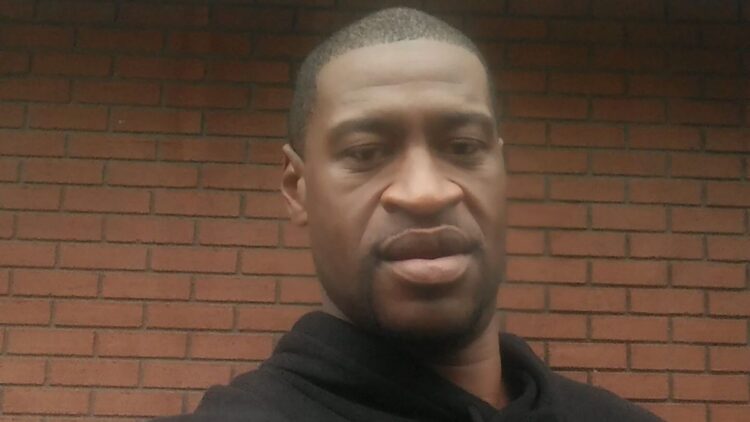By Aaron Miller-
Attorneys representing the four former Minneapolis police officers charged in the killing of George Floyd, have called for their clients to be tried separately.
It follows the filing of a motion last month by prosecutors seeking to try all four defendants at once, arguing that witnesses and family members “are likely to be traumatised by multiple trials”, and that the “interests of justice” necessitate one trial.
Derek Chauvin, who placed his knees on Floyd’s neck for nearly nine minutes, is charged with one count each of second-degree unintentional murder, third-degree murder, and second-degree manslaughter in the May 25 incident.
Prosecutors argued in earlier motions that the evidence in each case is similar, and that one trial would streamline logistics for witnesses, for Floyd’s family, for the court and for the community.
“Trying these cases jointly would ensure that the jury understands … all of the evidence and the complete picture of George Floyd’s death,” they argued. “And it would allow the community and the nation to absorb the verdicts for the four Defendants at once.”
Objections
The attorneys filed objections on Tuesday to an attempt by the prosecution to merge four cases in one trial. They provided similar reasons for their positions, but their filings also revealed serious concerns that what’s best for one defendant may not serve others.
They also expressed fears that their clients were being scapegoated for Floyd’s death. George Floyd died in police custody on May 25 when the former officers arrested him on suspicion of passing a counterfeit $20 bill at a south Minneapolis convenience store.
A single trial has currently been scheduled for March 8, 2021, in Hennepin County District Court. The submissions for separate trials are to be heard by Hennepin County District Judge Peter Cahill, who will hear oral arguments on Friday on whether the defendants should be tried jointly or together.
The judge will also hear arguments on motions to move the trial out of the metro and motions for dismissals from each defendant. The attorney for former officer Derek Chauvin argued that there’s a risk the other three defendants could collude to get Chauvin convicted on a specific count that would theoretically allow them to “walk free.”
“As is evident from pretrial pleadings, the other three defendants are prepared to place the blame for Mr. Floyd’s death squarely on Mr. Chauvin’s shoulders,” wrote attorney Eric Nelson. ” Such a possibility is less likely if Mr. Chauvin were tried separately from the other defendants.”
Former officers J. Alexander Kueng, Thomas Lane and Tou Thao are each charged with aiding and abetting manslaughter and second-degree murder.Nelson argued that they could “work together to imply” that Chauvin is guilty of third-degree murder and not the other charges, which would free them, since they are not charged as accomplices in the third-degree count.
“Mr. Chauvin will be required to defend the case differently from the other defendants,” Nelson wrote. “While they will need to cast doubt on their knowledge of Mr. Chauvin’s alleged intent — which, as is evident from their pretrial pleadings, they have already begun to do — Mr. Chauvin will need to dispute that he intended to assault Mr. Floyd.”
Kueng’s attorney, Thomas Plunkett, said that he intended to “shift blame onto Chauvin during trial.”
Nelson proposed that Chauvin could be tried separately, and the other defendants could be tried together to reduce the burden on the court system and witnesses. But the other defence attorneys advocated for individual trials.
“The defences are inconsistent and the cases cannot be tried together,” argued Earl Gray, who represents Lane.
Chauvin had served as one of Kueng’s field training officers and Lane had contact with Chauvin while he was still in training. Kueng and Lane were not in training at the time Floyd was killed, however, and Chauvin had no direct supervisory role over them at the time of Floyd’s arrest.
“There are very likely going to be antagonistic defences presented at the trial,” Gray wrote. “It is plausible that all Officers have a different version of what happened and Officers place [sic] blame on one another.”
Robert Paule, who represents Thao, has argued in previous filings that his client was focused on controlling angry bystanders and didn’t have full view of the three arresting officers as they pinned Floyd down in the street.
Thao should be tried separately because his role was “absolutely distinct” from the others, Paule argued, and because he did not work “in close concert” with them. He said there is no clarity on how similar the evidence will be for each case, and argued that “there is a high likelihood that mutually antagonistic defences will arise in a joint trial.”
Kueng might argue that he did not know Chauvin was going to commit a crime or that his presence or actions would help him do so, Plunkett wrote, stressing that his defence “is clearly antagonistic to Chauvin.”

